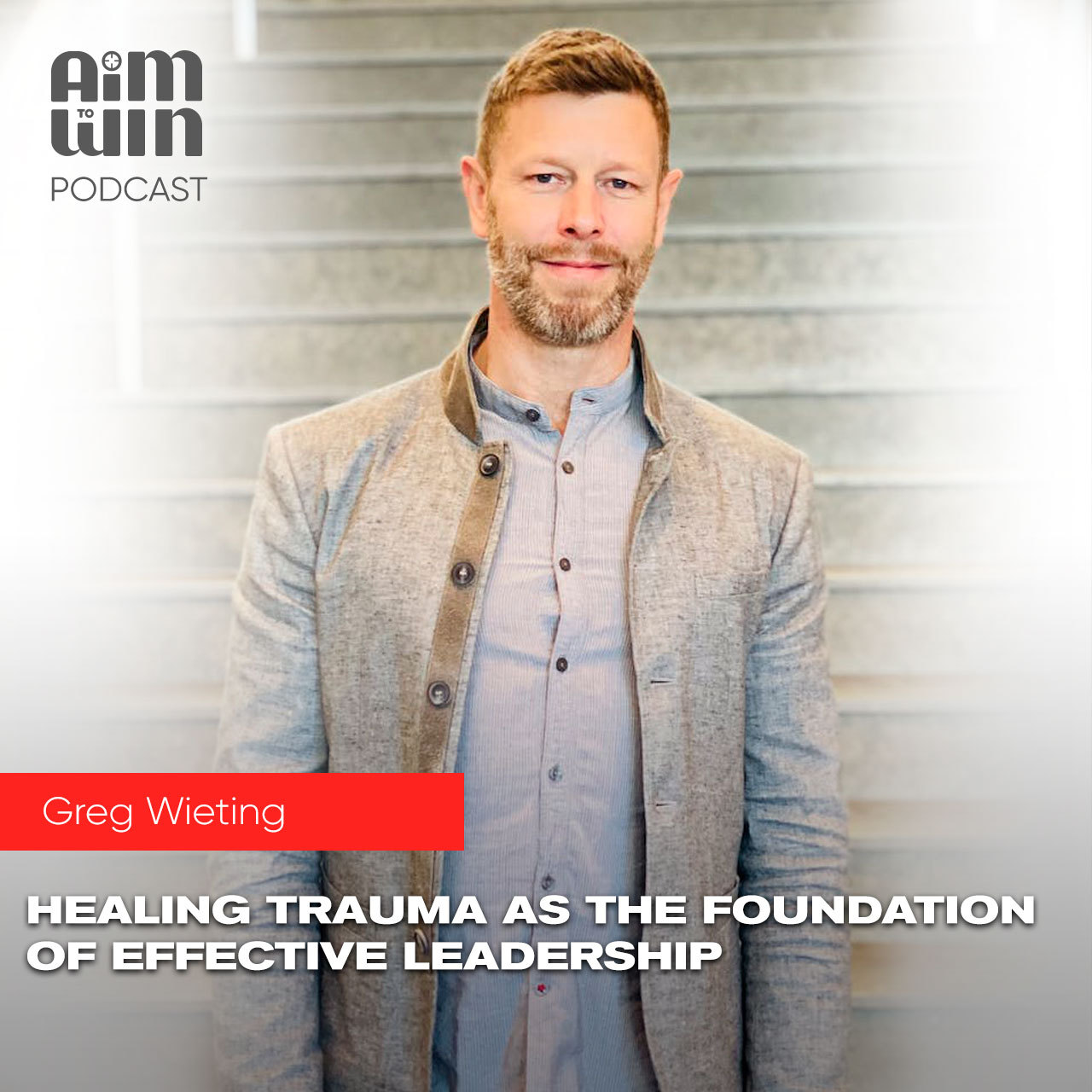Greg Wieting shares his story and why healing trauma should be an essential part of effective leadership. It’s okay to be vulnerable and have a policy of openness. Past trauma’s impact beliefs and decisions, not only for your team, but you as a leader. Greg shares his methodology and how it impacts your leadership style.
Who Is Greg Wieting?
Greg Wieting helps you heal the anxiety, depression, chronic pain, and trauma you can’t think or talk your way through.
He is the founder of PRISMA – a framework overlaying trauma, neuroscience, and energy medicine with somatic and mindfulness-based practices. He developed this while healing his own anxiety, depression, and chronic pain rooted in trauma. This included unraveling a severe spinal curvature and standing three inches taller today!
Over the last two decades, Greg has helped thousands heal through his one-on-one practice and has certified hundreds of healthcare professionals in his methodology. His new online course and community now make healing practical and accessible to all.
Vulnerability In Leadership
The manager will always be in a position of power in every manager-employee relationship. Even with all that power, how a leader communicates and behaves will undoubtedly influence the level of trust and rapport in their respective teams. If a leader is closed off, the team members will likely be closed off too. On the other hand, if a leader practices vulnerable leadership, you’re bound to have some truly amazing professional relationships. This begs the question, could vulnerability be the key to better leadership? Greg Wieting believes it could. Gone are the days when vulnerability in leadership was a sign of weakness. We live super stressful lives, and the last thing employees need is leaders who believe they ought to appear tough and dominant. That said, leaders still need to understand the difference between excessive openness that hinders flourishing and appropriate vulnerability that drives compassion and authenticity.
Healing Trauma is the Foundation of Effective Leadership
The sad thing about trauma is that it can appear in various aspects of a person’s daily life. In leadership, for example, the so-called “toxic leaders” are often a result of past psychological wounds. Unfortunately, healing from trauma is not a loud enough conversation in the leadership space. Leaders don’t want to be associated with trauma because, in their minds, trauma is a sign of weakness. But as Greg Wieting explains, healing past trauma is essential to becoming a more effective leader. And it all starts with leaders learning to let go of the toxic habits that affect a leader’s behaviors and decisions.
Leading with Humble Confidence
What’s the first thing that comes to mind when you think of the word ‘humble’? For the most part, people associate humbleness with being meek, submissive, and lowly. On the other hand, ‘confidence’ is usually associated with a person who is self-assured, worthy, and powerful. Of the two, confidence is often seen as a more positive trait in leadership – humbleness, not so much. But according to Greg Wieting, the key to effective leadership is having confidence and humbleness working hand in hand. If that’s the case, how can leaders ooze confidence but remain humble enough to sit at the feet of their team members?
To become an effective leader, you need to first face your ego. You need to be the type of person that your team authentically trusts and looks to for knowledge and guidance. The trick is to remain open to learning and growing while maintaining a fine balance of confidence and humility so they work in synergy.
How to Change Your Beliefs
Are your beliefs negatively affecting your leadership? The interesting thing about belief systems is that they are essential to the type of lives we create. For example, if you believe you will never achieve leadership success, that’s most likely what will happen. Greg goes on to add that a leader’s belief system is also likely to have an impact on their leadership style. The good thing is that we can choose to keep or change our beliefs.
To change your beliefs, you need to first convince yourself that your thoughts and emotions do not define you. The second and most important step is to slow down. The world is moving incredibly fast, but your mind doesn’t need to keep up. Slow down and drop the “hustle hustle” mentality. Remember, being busy isn’t always productive, and life is more enjoyable when you’re not struggling to keep up.
Links:

